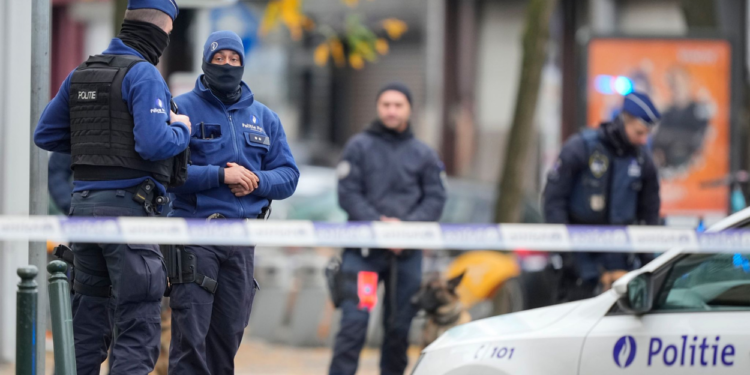Brussels (Brussels Morning) – Brussels’s real estate market maintains resilience despite rising violence, driven by high demand and limited supply dynamics.
Real estate prices in areas impacted by shootings in Brussels have persisted to rise despite the danger of violence, simply because supply is so downward and demand is so high. A spate of shootings in recent weeks has unnerved Brussels. Last weekend, two consecutive shootings in Laeken and Saint-Josse-ten-Noode conveyed the 2024 tally to 21 shootings, in comparison with 85 in 2022 and 108 in 2023.
The violence – often linked to feuds between drug trafficking gangs – has spurred calls for improved security across the capital. However, for the moment, real estate costs have remained much the same despite the action the shootings have caused. Even Saint-Gilles has retained its coveted status despite being the location of a concentration of incidents since the commencement of the year. The commune’s average rental price increased by 17% last year, and it is one of the top five most costly areas in the country to purchase property. The figures demonstrate no sign of slowing despite local violence continually making the headlines, according to real estate agents.
“I haven’t heard of any consumers who no longer want to buy or rent because they are scared,” Myimmo’s Sébastien Mullenders, whose offices are located in the centre of Saint Gilles, told Le Soir. “People see these circumstances as isolated incidents. They are not disrupting the market in any way.”
The consensus appears to be that demand for real estate is so elevated that incidents making the headlines – viewed as isolated happenings targeting individuals concerned in the drug trade – are not enough of a deterrent for forthcoming buyers and renters. “I believe that it would take a major upsurge in shootings for people to start wavering because, for the time being, the areas where the shootings took place are still safe,” Mullenders said.
However, the sector is also keenly conscious of how growing calls for reinforced security might alter Brussels’ image as a proper city in which to purchase property. Trevi CEO Kim Ruysen states the debate surrounding security must be handled in such a way that will comfort the public, otherwise, there may well be a harmful impact on the real estate sector. “We need to support the perception that everything is under control,” he noted.
While housing prices dropped significantly in the rest of Europe in 2023, they persisted in rising in Belgium, albeit at a lower speed than in previous years (3% corresponded to an average of 10% between the end of 2020 and 2021). This upward trend is predicted to last until the end of the year, according to Immoweb’s annual report unleashed in February.
The OECD has expressed the housing situation in Brussels as one in an “acute” crisis. The average household earnings is disproportionately lower than the Region’s relative wealth, and many people labour to get onto the property ladder as a result. 60% of Brussels’ inhabitants are renters, and rent prices increased by 20% between 2004 and 2018, making them markedly higher than the 3.3% OECD average.
Despite the concerning escalation of shootings in Brussels, the real estate market has displayed remarkable resilience, maintaining its upward trajectory in terms of both prices and demand. The persistence of high demand and limited supply has kept real estate costs relatively unaffected, even in areas directly impacted by violence. While calls for enhanced security measures reverberate throughout the capital, the consensus among real estate agents suggests that these incidents, albeit troubling, have not deterred prospective buyers and renters significantly. However, there remains a keen awareness within the sector that perceptions of safety could ultimately influence Brussels’ attractiveness as a property market. Balancing security concerns with maintaining the city’s appeal is imperative to safeguarding the continued growth of the real estate sector amid challenging circumstances.




